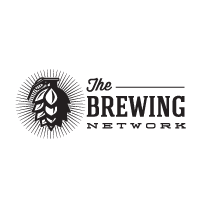
Craig Thomas
How did you get into the beer industry? Why does beer matter to you?
My first brewing job was meant to be a stepping stone into distilling. However, as I pursued my master’s in brewing and distilling at Heriot-Watt University, I began appreciating beer more and more. To me, it felt like a more experimental, exciting, and forward-thinking craft. The diversity of ingredients, techniques, and historical traditions delivered a broader, more compelling story of flavor and experience than distilled spirits did. There is so much to learn, and each moment of learning is aided or reinforced by sensory experiences that have created very impactful memories for me. Since graduating in 2014, I’ve done my best to shape my career path by putting myself in situations where I can absorb knowledge from people with different types of expertise. I’ve had the privilege of traveling the world tasting beer while working with Bill Simpson and AROXA. I’ve brewed with some of the best at Firestone Walker Brewing Company, tested my practical and theoretical sensory knowledge as part of the ASBC Sensory Subcommittee, and explored beer dispense in order to earn Master Cicerone. Now, at Abstrax Hops, I’m reevaluating everything I thought I knew about beer. New frontiers never end!
Why do you judge at the World Beer Cup? What does judging at the World Beer Cup mean to you?
There is no other place where so many diverse, knowledgeable, and experienced people gather to taste and talk about beers and beer styles. What better spot to challenge preconceptions, discuss new techniques, and discover new trends? Furthermore, the competition brings in a plethora of world-class examples across so many styles. It is the only place where one can repeatedly experience technical precision and artistic expression in equal measure—sometimes at the same time. Competitions like the World Beer Cup are outlets where a brewer's intent can be fully grasped and appreciated, as these beers are labors of love, often produced fresh and free from the constraints of distributor deals, consumer preferences, cost-of-goods quandaries, and dispense dilemmas.








